-
main-collection-product-grid
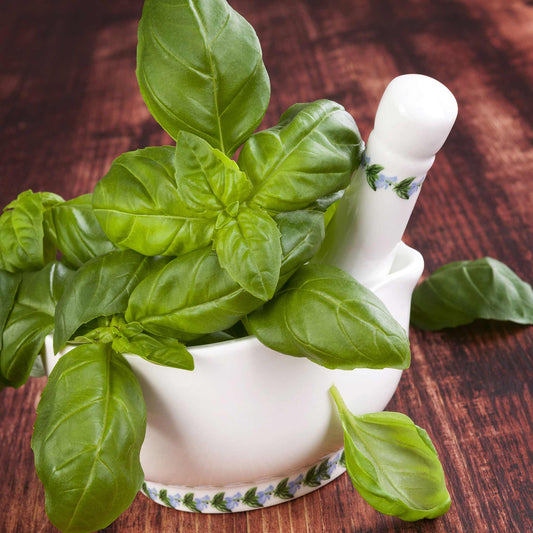
Basil Seeds (Organic) - Genovese
THE sweet basil to satisfy your pesto and caprese salad dreamsBasil Seeds (Organic) - Genovese
THE sweet basil to satisfy your pesto and caprese salad dreamsRegular price As Low As $6.99Regular priceUnit price per -
main-collection-product-grid
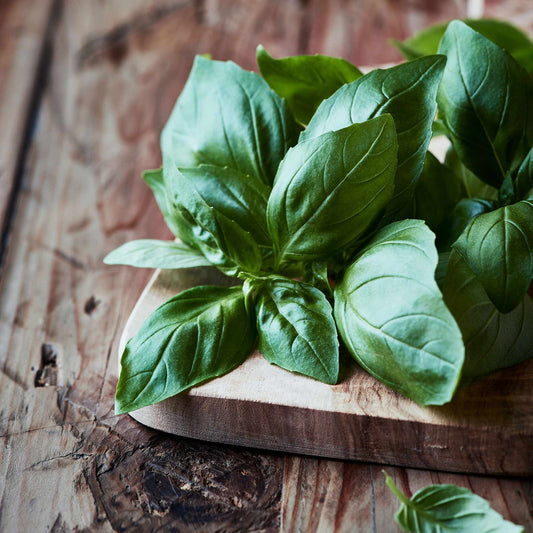
Basil Seeds (Organic) - Italian Large Leaf
The aroma conjures up lazy summer days of pasta and pizzaBasil Seeds (Organic) - Italian Large Leaf
The aroma conjures up lazy summer days of pasta and pizzaRegular price $6.99Regular priceUnit price per -
main-collection-product-grid
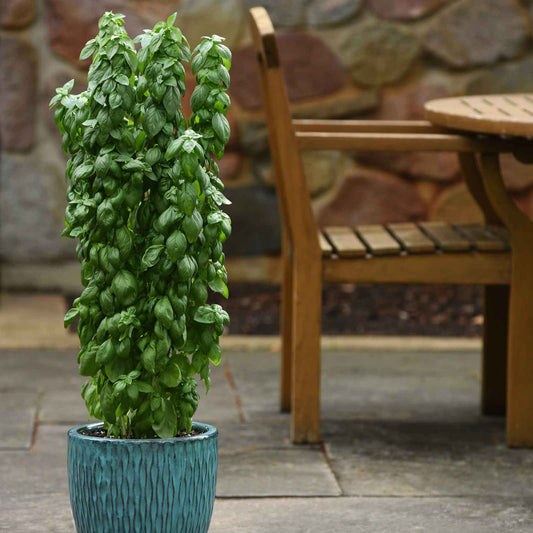
Basil Seeds - Everleaf Emerald Tower
Great for container gardening or as a decorative accentBasil Seeds - Everleaf Emerald Tower
Great for container gardening or as a decorative accentRegular price $6.99Regular priceUnit price per -
main-collection-product-grid
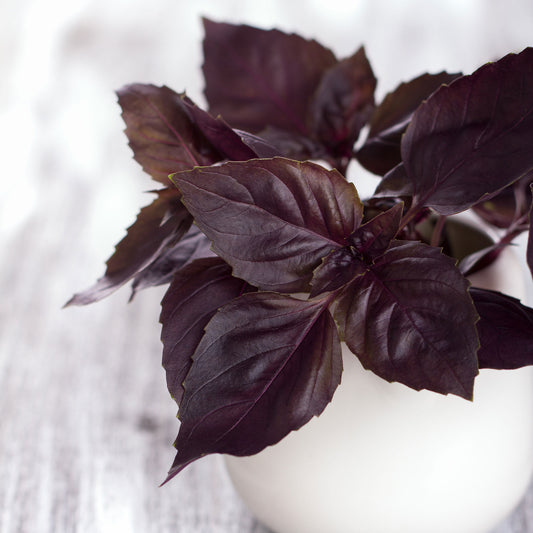
Basil Seeds (Organic) - Dark Opal
Beautify your dishes and garden with this dark purple stunnerSaleBasil Seeds (Organic) - Dark Opal
Beautify your dishes and garden with this dark purple stunnerRegular price As Low As $6.99Regular priceUnit price per$35.99Sale price As Low As $6.99Sale -
main-collection-product-grid
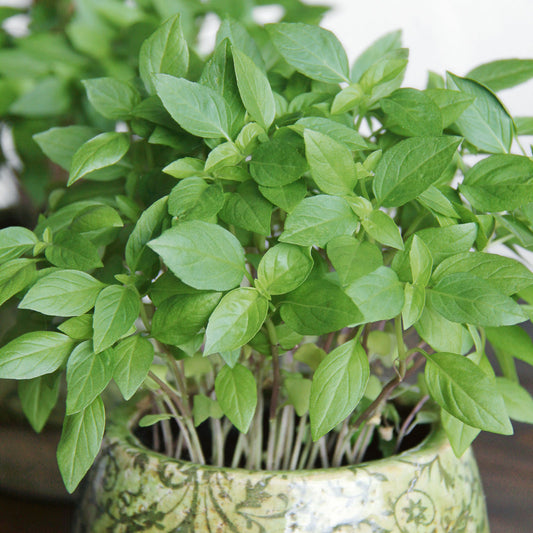
Basil Seeds (Organic) - Thai
Thai cuisine staple of anise, clove, and licoriceBasil Seeds (Organic) - Thai
Thai cuisine staple of anise, clove, and licoriceRegular price $6.99Regular priceUnit price per
Growing organic basil in your garden
- Easy to grow and fast-growing
- Deer resistant
- Offers flavor with a balance between sweet and savory, with hints of mint, anise, and pepper
- Can be used medicinally for stomach spasms, loss of appetite, kidney conditions, and more
The best organic basil for home cooking
Organic basil is a plant that is grown for its tasty leaves and can be either annual or perennial. It is a tropical plant native to Central Africa and Southeast Asia that has grown in popularity due to its usage in a range of cuisines and presence in traditional medicine. It's used in a variety of Italian cuisines, including pesto and marinara sauce. Basil is commonly used in thick soups in Taiwan. It's also widely steeped in cream or milk to give ice cream and even chocolate a rich flavor. Organic basil is a delightful accent to a variety of cuisines, no matter how you use it.
Different organic basil varieties
Depending on the variety, basil plants can grow to be one to five feet tall. It has dark green, ovate leaves that vary in size and form according to the species. Organic basil varieties such as Genovese, Italian Large Leaf, and Dark Opal, are all popular. The selection, on the other hand, does not end there. Almost any culinary necessity may be met with a basil cultivar.
How to grow organic basil
Organic basil is exceedingly simple to grow and takes very little work. It is often grown in pots or garden beds near the kitchen door, where it may be conveniently harvested for cooking. When choosing a growing location, choose one that receives at least six hours of direct sunshine every day and is shielded from chilly winds. Basil grows best in rocky, well-draining soil. Seeds can be started indoors up to six weeks before the final frost, then transplanted outside after the weather has warmed up and the seedlings have hardened off.
You can easily pinch off the leaves when you're ready to harvest your organic basil. Early in the morning, after the dew has dried, but before the plants have been exposed to the intense noon heat, is the best time to cut. Because basil will die if it comes into contact with cold, gardeners may extend its life by taking basil pots indoors and placing them near a south-facing window. Organic basil may be grown outside all year in zones 9 and above.
To plant, loosen the soil by tilling it and amending it with compost or well-rotted manure to improve drainage. Organic basil seeds should be sown 1/4 inch deep. Successful plants should be spaced eight inches apart (or more, depending on the variety). Rows should be 18 to 24 inches apart. Maintain a moist basil soil, but don't overwater it.
For more information about planting, growing, and caring for organic basil, see the Basil Seeds Planting Guide.




